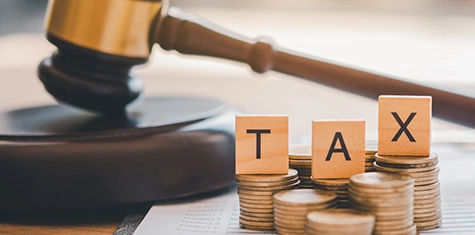By Wayne W. Carlson, Michael S. Raum & Elizabeth L. Alvine
 No one wants to be audited, whether by the IRS or the state tax authorities. However, there may be instances in which it is important to make sure that you are actually subject to an audit, in order to ensure that your rights are protected.
No one wants to be audited, whether by the IRS or the state tax authorities. However, there may be instances in which it is important to make sure that you are actually subject to an audit, in order to ensure that your rights are protected.
We have recently seen several instances in which the North Dakota Tax Commissioner’s office has contacted taxpayers and asked them to fill out questionnaires which would help determine whether or not they are subject to sales and use tax in North Dakota. These include an “interstate questionnaire,” intended to evaluate a taxpayer’s connection (nexus) with the state for tax purposes.
To a taxpayer, this naturally seems like an audit. Being contacted by a representative of the tax commissioner and being asked to fill out paperwork is, after all, basically what an audit is all about. However, the tax commissioner may take the position that this is not in fact an audit, but rather a request for a taxpayer to provide information voluntarily. This can have very important effects as the case goes forward.
Assuming that a taxpayer proceeds with the discussions, the tax commissioner may ultimately determine that additional tax is due based on a decision that the taxpayer has a connection to North Dakota that required paying sales or use tax, or some other kind of tax. That may also include the imposition of interest and penalties. The taxpayer may not agree, or it may agree with the tax but wish to avoid interest and penalties.
In any of these cases, a taxpayer will certainly want to preserve its rights to seek administrative review of the tax, the interest or the penalties. The North Dakota Century Code, as implemented through the Administrative Code, proscribes a procedure for contesting additional taxes, and it also gives the tax commissioner some discretion with respect to waiving interest and penalties. See N.D. Admin. Code § 81-01.1-01-06 through -10. However, the ability to seek administrative and judicial relief depends on an audit having been conducted. If the tax commissioner takes the position that the entire proceeding was actually a voluntary discussion as opposed to a formal audit, then no relief may be available.
The term “audit” is defined by the Administrative Code as “an examination or investigation by the tax commissioner to determine the accuracy of information on a tax return or to determine whether a tax liability exists.” See N.D. Admin. Code § 81-01.1-01-02(2). Is the situation described above an audit? While most tax professionals would agree that this procedure would constitute an audit, no North Dakota law exists clearly answering that question. As a result, there is uncertainty about how a court would answer the question, which would directly affect the ability of a taxpayer in this situation to obtain a review of the tax, penalties and interest.
As a result, it is very important to understand the nature of a proceeding when contacted by the tax commissioner. In such cases, a taxpayer may wish to ask specifically whether or not there is an audit ongoing. If the answer is “no,” then as strange as it might seem, the taxpayer might wish to request that a formal audit be opened, because failing to do so may result in a loss of important procedural rights. We urge taxpayers and their advisors to be cautious when dealing with the North Dakota State tax commissioner in this type of instance.


